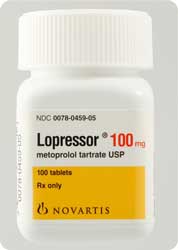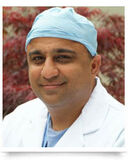Patient Recovery Update: Kerrigan Stops Beta Blockers, Gains Energy and Improves Blood Pressure
Written By: Adam Pick, Patient Advocate, Author & Website Founder
Page Last Updated: June 10, 2025
Kerrigan just sent me a very interesting update about his heart valve surgery recovery. As his email touched on many patient issues — fatigue, blood pressure, beta blockers and patient advocacy — I thought you might enjoy his perspective and positive results.

Hi Adam:
Remember how I was saying even 1-1/2 years after the surgery for aortic valve replacement I was still losing energy? It was so bad that, after climbing stairs, I had to sit down and rest. I could not do normal activities without becoming exhausted.
So I started searching the Internet for more information. Eventually, I discovered a discussion group that connected fatigue to the use of beta blockers. FYI, I was on a beta blocker (metoprolol)… a generic for Lopressor.

As I did not have high blood pressure before the surgery, I finally pressed my cardio-physician as to the clinical reason I needed Lopressor after surgery. She hemmed and hawed for a moment and responded, “It’s basically a protocol to have heart surgery patients on blood pressure meds after surgery.”
I questioned, “Forever? Even if I did not have previous problems with blood pressure? What if I stop taking it?”
The cardiologist said, “Okay, lets try getting you off Lopressor.”
Within a week after discontinuing the medication, my energy started to return. Within three weeks, I was feeling like my old pre-op self. I was finally able to do most activities without exhaustion. And, my blood pressure is now normally LOWER than when I was on the medication! My blood pressure runs around 115/79 most days I check it now. On the meds, it was 125/85 on a good day. I think exercise and diet keeps my blood pressure low.

The bottom line for patients… Don’t assume anything. Ask questions. Press the doctors for specific data as it relates to YOU. Often times, I’ve found many physicians follow “protocols” instead of what YOU, the patient, might specifically need.
Boy is it nice to walk up a hill again without stopping every 10 feet to rest!
Adam, thanks again for all you do. Your website, together with your heart valve book, made all the difference!
Related Links:
- Surgeon Q&A: Metoprolol Use After Heart Valve Surgery
- High Heart Rate & Low Blood Pressure After Heart Valve Surgery
Kerrigan
P.S. A quick note from Adam… Please remember to check with your physician before altering your medication therapy. While Kerrigan’s story illustrates a positive result from stopping Lopressor, each patient case is unique and should be evaluated under proper medical supervision.
|
Marlane Holtshouse says on September 12th, 2010 at 1:23 pm |
|
Wow, Thanks for the info as I too have been tired a year after my aortic valve replacement. I will certainly call my Dr. Thanks again. Marlane |
 |
|
Steve says on September 12th, 2010 at 1:40 pm |
|
Hi Adam. I had my ascending aorta replaced on June 28th and was put on Metoprolol Beta Blocker 50mg per day on discharge from the hospital. As I recovered from the surgery I began to notice the side effects of the beta blocker. My cardiologist first said I would be on them for a year then decided six months when I protested. |
 |
|
Carl says on September 12th, 2010 at 1:49 pm |
|
One factor to consider is the reason for a person’s aortic valve problem that required surgery. If it was the result of an aortic aneurysm caused by a connective tissue disorder (e.g., Marfan’s), a doctor with many years of experience in that area said at last year’s National Marfan Foundation convention that he keeps his patients on a beta blocker even after aortic valve replacement surgery. His rationale is once you’ve had the aortic aneurysm, you’re a proven dilator, and the beta blocker helps reduce stress on the aorta. I too do not like the feeling of being tired, but I’m willing to put up with it if taking a beta blocker will reduce the chances of aneurysms further down the aorta or dissection. People absolutely should consult with their doctors, do their own homework, and evaluate the pluses and minuses for them. |
 |
|
Bob Collins says on September 12th, 2010 at 5:01 pm |
|
Dear Adam, After reading Mr. Gray’s letter, it brought back memories of my own surgery. On November 21, 1974, I had my aortic valve replaced by Dr.John Kirkland, in Univ.of Ala. Hospital,in Birmingham, AL. I had aortic requrgation, caused by childhood rheumatic fever. I was 36 years old, and in reasonably good health. One problem I had, was very low systolic blood pressure, about 80/20. After Surgery, while I was still in the operating Room, I began to wake up. They were still working on me, as I was begining to wake up. I was trying to wiggle my toes, or move something, to let them know that I was waking up. I heard the nurse call out that my blood pressure was 120 over 80. I knew then that they had the new valve in. About that time they realized that I was waking up, and they gave me a little more morphine, until they could finish. It has been a long time ago, but I remember it like it was yesterday. |
 |
|
Kathy Holt says on September 12th, 2010 at 9:24 pm |
|
Glad you brought this to our attention. Since my aortic valve replacement last Dec., still using Metoprolol tartrate 25mg due to heart arthemia problems. 7 days after surgery had to have my heart shocked (the two paddle thing). No one told me of this possible complication after surgery. Metoprolol prescribed to 3 pills @ 25mg ea. per day. Reduced dosage after speaking to my doctor about 4 months after surgery down to 2 pills then to half a pill twice daily due to nausia problems. During my last appt. with doctor feels it’s best to continue taking Metroprolol. It’s discouraging being tired all the time. As long as my heartbeat continues to stablize, I’ll see if can be discontinued. Thanks again for the “heads-up”. |
 |
|
Don Hull says on September 13th, 2010 at 3:00 pm |
|
I had mitral valve replacement surgery in April 2009 and was prescribed 12.5 mg Metoprolol, 3 times per day, (37.5 mg total per day) as part of my medicine regimen. My blood pressure consistently runs 120/75 and I’ve never had so much energy. I really do feel better than I did prior to my surgery. However, I do admit to questioning my cardiologist as to the possibility of someday being “weaned” off some of my prescriptions. This is a good piece of information to keep for reference but I personally would never change my medication without my cardiologist’s knowledge, especially since I’m a pilot. |
 |
|
Adam Pick says on September 13th, 2010 at 3:22 pm |
|
Great comments everybody. Don – I especially appreciate your thought, “This is a good piece of information to keep for reference but I personally would never change my medication without my cardiologist’s knowledge.” Adam |
 |
|
Cindy says on September 13th, 2010 at 11:41 pm |
|
My cardiologist here in CA (I had surgery in NY) took me off what the NY doctors had me on & put me on a “new” (in the past 2 yrs here in the U.S.)medication called Bystolic. It has been in use in Europe for some time now. It does not cross the blood brain barrier as do the beta blockers & has WAY fewer side effects. I take a pediatric dose of 2.5mg/day (cut in 1/2 .. 1/2 in AM & 1/2 in PM.) I was on the verge of passing out (the white sparkles) everytime I got up on the Lopressor! I could not get anything done! I was in the hospital 8 days & only walked the hall twice as it was so bad. They cut the dose in 1/2 … but when I got home & tried to walk across my patio … it was going, going … gone :{ I was so glad to be switched to the Bystolic!! My dad is a pharmacist & he didn’t know about this medication until I told him! Nor did my local family doctor. So, ask, ask, ask!! |
 |
|
Kimberly says on September 14th, 2010 at 7:06 am |
|
Hello. My names is Kimberly. I experienced 3 surgeries in 17 months. Also, diagnosed with adult asthma ( after the second surgery). I continue to experience breathing problems, exhaustion, chest pains from the pace maker, etc.. on a daily basis. Please provide any feedback if you experience similar symptoms? I remain ENCOURAGED & that God for another day. |
 |
|
Bob says on September 14th, 2010 at 11:46 am |
|
I had aortic valve replacement a couple of weeks ago, and feel mildly betrayed by the results: I was told I wouldn’t need coumadin, but I do for several weeks; I am on Amiodarone, which can cause pulmonary fibrosis; finally, I am on Metoprolol for a rapid heart rate and high BP (neither of which I had pre-surgery). The drugs are scary in terms of their side-effects, especially the Metoprolol, since I was told BP meds cannot be stopped once started. When I asked her whether I could ever wean myself from my Metoprolol, my phamacist said, somewhat condescendingly, “No. It is lifelong medication. If you can, you’d be the first one I’ve seen.” I would like to know whether anyone (including Kerrigan) who has successfully stopped taking them gradually stopped, and what other steps they took (nutrition, exercise) to ensure success. Anyone? |
 |
|
Kerrigan says on September 14th, 2010 at 2:14 pm |
|
Let me be very clear I consulted seriously with the cardio people and my primary physician BEFORE I weaned off the Metoprolol and then the duretic. I let my self get pretty down about it all before deciding to take some positivie action and dig to the bottom of it all. And to be able to lead a fairly “normal” life now. What a HUGE difference and relief. |
 |
|
Meigs says on September 14th, 2010 at 4:02 pm |
|
Speaking only for my experience as 62 yr old woman- I had nice low pressure and normal heart rate before porcine mitral vlave replacement Dec 09. Soon after the surgery, I had atrial fibrilation with a rapid heat beat, so I had to be on metropolol and coumadin. I had a succesful cardioversion late Feb, which returned my heart rate to normal, and stopped the afib. I had to stay on the meds for about 6 weeks after just to be sure. The cardio then took me off both. I am not on either medication now – feel great. |
 |
|
Vivian says on September 14th, 2010 at 10:06 pm |
|
Bob: In response to your question, let me tell your pharmacist does not know what he is talking about. People do wean off Toprol. It is difficult for some, as numerous internet postings attest; but, it is possible. I just finished weaning off Toprol. I was on it (without any side effects) for about seven weeks after pulmonary valve replacement surgery. Then, my cardiologist told me to cut the dose in half for five days, followed by a complete stop. The first three or four days were not easy; I was tempted to take just one more Toprol. My heart was racing, and I felt like I was going to go out of my mind, especially on day two. But, I kept reminding myself that it was normal and not dangerous. I am certainly not suggesting that your experience will be like mine–it might better or worse. But, I can confirm that weaning off Toprol does happen all the time. |
 |
|
Bob says on September 15th, 2010 at 3:27 pm |
|
Thank you Kerrigan and Meigs for sharing your experience and information. I also had the Maze procedure done to correct the atrial fibrillation, but was told that that may not be effective until the heart heals in a few months – during which period I will take steps to cut out all fat, exercise to the extent I can (although the Metoprolol slows the heart rate, which may be why Kerrigan was so exhausted – the heart could not beat fast enough to supply the muscles with oxygen), etc. At that point, if the atrial fib is still an issue, I may opt for cardioversion, followed by dropping the Metoprolol (with my cardiologist on board to mentor the effects). That stuff gives me the heebie jeebies – from exercise intolerance to dependency to hair loss. I need all the hair I got. |
 |
|
JUDITH says on September 16th, 2010 at 10:10 pm |
|
MY HUSBAND, JOHN, IS A YOUNG, FIT 70YR OLD MAN. HE IS SCHEDULED FOR AORTIC VALVE SURGERY AT CLEVELAND CLINIC IN OCTOBER. I AM TRYING TO FIND OUT WHAT TO EXPECT AFTER SURGERY. I CAN’T SEEM TO GET ANY INFORMATION. THE ONLY PEOPLE I KNOW WHO HAVE HAD THIS NEVER REALLY RECOVERED. IS THERE ANYONE WHO FULY RECOVERED AND LIVED A NORMAL LIFE AFTER THIS? HIS CORONARY ARTERIES ARE CLEAR AS ARE HIS CAROTID ARTERIES. THE REPLACEMENT IS DUE TO A SEVERE LEAK. |
 |
|
fazilat says on September 23rd, 2010 at 8:01 am |
|
hi. Fazilat |
 |
|
Vince Kelley says on September 27th, 2010 at 6:13 pm |
|
To answer Judith’s question as to whether one can fully recover and lead a normal life after aortic valve surgery, the answer is yes. I am an active 54 year old who had the Ross Procedure last December 7th. My aortic valve was damaged by rheumatic fever when I was 14. The leakage progressed over the last 10 years to the point where it needed replacement. I chose the Ross Procedure over a mechanical valve so I wouldn’t need the lifelong blood thinners. My recovery went great, probably aided by the fact I was in good shape and very active beforehand. I was walking a mile 9 days after surgery and it just progressed from there. I started running again in early January after getting the OK from my surgeon. I was given the OK to start light weights at the beginning of February. In July I was told by my cardiologist that I had no restrictions but to listen to my body and don’t be stupid and do too much. At this point I am as active as I was before the surgery. I will be running a half marathon on Oct. 17th. This will be my longest race since the surgery. I started following this post as I am still on metoprolol (25mg) once in the morning and Benicar (5mg) in the evening. I am not feeling quite the side effects that others have noted but have noticed that if I run after taking the metoprolol that I seem to be held back a bit. As my blood pressure was always low before the leakage progressed and is now in the 125-135 over 75 to 80 range, I too would like to talk to my doctor about getting off it. Thanks for all the other comments everyone. Vince |
 |
|
Benjamin says on September 30th, 2010 at 12:58 pm |
|
I’m 38. I had surgery to repair an ascending aortic aneurysm last November, around the same time as Kathy Holt above. Like Kathy, I too am still taking a small dose of Toperol XL everyday and my cardiologist says it’s to minimize arrythmias as well as keep the stress of my aorta. I’ve always been in perfect health except for the anuerysm, and i’m running the NYC Marathon this November 7 on the one year anniversary of my open heart surgery. My surgeon Allan Stewart is running with me to commemorate the event. I feel great, but I hate taking the Toperol…i’ve never been a “pill” person, but I guess for now i have no choice. My cardiologist thinks I should stay on it for now. I too had to go back into the hospital a few days after being home and get a Tee echo to check for clots, and then get paddled to reset my heart. That experience is not uncommon, but I tell you; it was much worse than the surgery itself! |
 |
|
Doug says on October 12th, 2010 at 8:26 am |
|
I am 43 and just had mitral valve repair. I thought everything was going fine till I got home and taking toporol 25 X 2 (supposedly only for 3 months). Started causing excruciating migranes each time I took it. Hosp told me to get an mri to check for stroke. When I stoped taking med, miraculously h/a went away (I know real dumb). I have to look for a less side effect beta blocker. Good Luck everyone else! Be your own advocate! |
 |
|
Paul Tassinari says on March 30th, 2011 at 6:11 pm |
|
Hi, Paul |
 |
|
Doug says on April 1st, 2011 at 4:42 pm |
|
I had MVR repair in Oct 2010. A month later was back in the hospital to drain a 1/2 gallon of “fluid” from pleural area (outside lung). My BP has basically returned to normal, my heart rate is still higher than I would like (75 – 85). My hr actually goes down with activity? I am off all meds (by personal choice), and don’t see why I would need meds to lower my HR to my pre-surg 50’s-60’s level. Seems like tying blocks to someones feet because they walk too fast…Overall I feel better. Still haven’t set up a cardio work out routine, b/c I am too busy w/ 3 kids + wife + work. I guess they are my work out. Has been a PIA uphill road, but it has helped me to appreciate every day (minute) and I am really happy to be alive. Keep up the faith!!!! |
 |
|
Susie says on April 24th, 2011 at 12:22 pm |
|
I am a 53 yr old woman and I had pulmonary valve replacement 7 weeks ago. Went back to work last week (office job) and all was well…a little tired when I got home, but otherwise good. On Saturday, began to have no energy at all. Have been taking toprol 12.5 mg/day since before surgery. Could the Toprol be the problem, or maybe a combination of going back to work along with the beta blocker? Would appreciate any coments or suggestions. |
 |
|
kathy says on April 3rd, 2015 at 4:45 pm |
|
Help My husband had Aortic Valve surgery in 2014 December. He has exercised for 25 years eats low fat and feels great. But…..He was put on a BB after surgery and after exercising at cardiac rehab his BP was normal. He went to the DR and he wanted him to stay on 25MG total. We decided to wean to 6.25 twice a day and his BP are 180/90 after .exercising. He wants off this Med |
 |
|
kathy says on April 3rd, 2015 at 4:48 pm |
|
Heck yea, Where did you hear that? I am also a Nurse. This is really easy surgery for a fit person. No worries. My husband said it was better than a cardiac cath .by a mile |
 |













